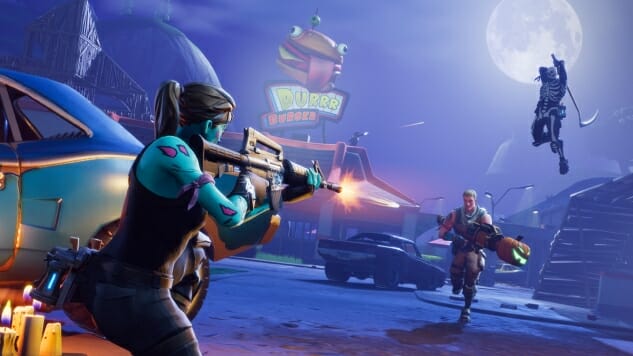PUBG Vs. Fortnite: The Growing Pains of a New Genre

PUBG Corp is suing Epic Games for an alleged copyright infringement related to their massive hit, Fortnite: Battle Royale. The relationship between the two games has always been contentious, especially with Fortnite using the title of “battle royale,” a term that to that point had been mostly considered synonymous with the genre, not with any particular game.
There is a point in which we stop referring to games using a “-like” signifier and instead create a genre title for games that use a certain set of mechanics or settings. “Doomlikes” became “first person shooters” in the 1990s, and the 2000s saw “Grand Theft Auto Clones,” or “GTA-likes,” more properly classified as “open world” games.
We’re seeing the same process happening now with battle royale games (which, if you wanted to, you could call “GTA-like Doomlikes”). The genre that began with modifications to other, more long-form survival games has now taken over the popular consciousness of the world. Fortnite is big enough to have more than a few mainstream celebrities namedrop the game online, and PlayerUnknown’s Battlegrounds consistently holds one of the top spots on Steam’s live tracking of current players.
However, unlike something as broad as “first person shooter” or “open-world,” “battle royale” games generally use a more specific combination of mechanics to invoke the genre. At this point, it’s pretty much standard that a battle royale game will include some element of a shrinking playspace, equivalent starting loadouts, and a degree of soft-survival mechanics like scavenging and healing. Battle royale, as a genre, is relatively standardized.